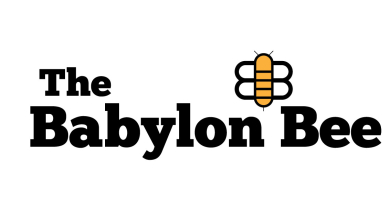
A federal judge has struck down a California law signed by Gov. Gavin Newsom that prohibits the creation of deepfake images and videos of politicians after conservative Christian satire site Babylon Bee and others sued.
In a decision released Friday, U.S. District Judge John Mendez of the Eastern District of California ruled that the Assembly Bill 2839, which bans most deepfakes of political figures, "discriminates based on content, viewpoint, and speaker and targets constitutionally protected speech."
"Rather than targeting content that procures tangible harms or materially benefits a speaker, AB 2839 attempts to stifle speech before it occurs or actually harms anyone as long as it is 'reasonably likely' to do so and it allows almost anyone to act as a censorship czar," wrote Mendez, a George W. Bush appointee.
"The far-reaching prior restraints AB 2839 implements have not been recognized by First Amendment caselaw thus far and have no historically accepted analogs."
California could have tailored the law to "false speech that causes legally cognizable harms like false speech that actually causes voter interference, coercion, or intimidation," Mendez added.
"California could also limit the statute's reach to factual statements that are demonstrably false like the time, date, place, or manner of voting," he continued.
The Babylon Bee and other plaintiffs were represented by the Alliance Defending Freedom, a religious freedom legal organization that has won First Amendment cases at the Supreme Court level.
"Making fun of politicians and criticizing the government is a core First Amendment right. That includes using new technology to create parody campaign ads or satirical memes," ADF Senior Counsel Johannes Widmalm-Delphonse, who argued the case before the court, said in a statement.
"The court was right to rein in California's blatant censorship. We can't trust the government to decide what is true in our online political debates."
Last September, Newsom signed AB 2839 and Assembly Bill 2655, which both sought to limit the extent to which deepfake media of political figures could be made during election seasons.
The law prohibited the creation of deepfakes of politicians that negatively portrayed them, and also allowed for candidates to file civil lawsuits against the creators of such digital media.
California Assemblymember Gail Pellerin, D-Santa Cruz, sponsored AB 2839, stating in a 2022 statement that she believed the law was "a significant step in continuing to protect the integrity of our democratic process."
"With fewer than 50 days until the general election, there is an urgent need to protect against misleading, digitally-altered content that can interfere with the election," stated Pellerin. "California is taking a stand against the manipulative use of deepfake technology to deceive voters."
"I'm thankful that Governor Newsom signed this legislation to ensure that voters are equipped with the accurate information they need to make informed decisions this November."
The legislation was instigated by a highly publicized ad created last summer by political commentator Christopher Kohls, who was one of the plaintiffs in the litigation.
Kohls' ad used a narrator voice that was digitally altered to sound like then-Democratic presidential candidate Kamala Harris as a way to make fun of the nominee.
The ad was then retweeted by X owner Elon Musk, prompting outrage from many, including Newsom, who vowed to sign legislation to prohibit such ads in California.













